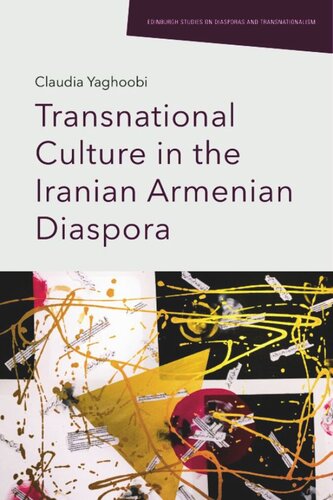

Most ebook files are in PDF format, so you can easily read them using various software such as Foxit Reader or directly on the Google Chrome browser.
Some ebook files are released by publishers in other formats such as .awz, .mobi, .epub, .fb2, etc. You may need to install specific software to read these formats on mobile/PC, such as Calibre.
Please read the tutorial at this link: https://ebookbell.com/faq
We offer FREE conversion to the popular formats you request; however, this may take some time. Therefore, right after payment, please email us, and we will try to provide the service as quickly as possible.
For some exceptional file formats or broken links (if any), please refrain from opening any disputes. Instead, email us first, and we will try to assist within a maximum of 6 hours.
EbookBell Team

4.0
36 reviewsTransnational Culture studies the ways that diasporic Iranian Armenian authors and artists negotiate their identities as minoritized population within a liminal space that includes religious, ethnic, national, racial, cultural, gender, and sexual factors. Yaghoobi argues that this liminal state of fluidity helps them to develop a resilience towards ambiguity and handling ambivalence in dealing with various cultures as well as resisting dualistic thinking. This in turn allows them to move beyond national boundaries to transnationalism, yet simultaneously display the collective Armenian identity characterized by flexibility, adaptability, and continuity as a result of both multiple uprooting and a Genocide that continues to this day. They serve as a bridge between the homeland and the host nation, occupying what the author theorizes as verants’ughi – the transformational passageway, which requires them to not only risk being in a transitory space and give up the safe space of home and the power that comes with it, but also through doing so, they create transformative works of literature and art.